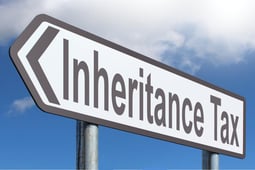
Introduced in the Finance Act 2012, SARP was developed to promote the relocation of valuable and key talent within organizations to work in Ireland. Special Assignee Relief Programme (SARP) offers tax relief for up to five consecutive tax years from the individual’s first year of claim.
There are a number of qualifying conditions. Individuals claiming the SARP relief must:
- Earn a minimum basic salary of €75,000 per annum
- Be tax resident in Ireland for the entire tax year that the relief is claimed
- Not have been tax resident in Ireland in the five tax years immediately preceding the year of their arrival in Ireland
- Have arrived in Ireland in any of the tax years 2012 to 2022, at the request of their employer to perform duties of their employment for that employer or an associated company of their employer
- Worked outside Ireland for a minimum period of six months for a company located in a country with which the State has a double taxation agreement. There must be no gap in the individual’s employment before being assigned to work in Ireland.
Check out the video below to understand SARP in a few minutes.
Calculating SARP Relief
The individual can make a claim to have a proportion of their employment earnings disregarded for Income Tax (IT). For 2019, the proportion is 30% of your income over €75,000 up to a limit of €1,000,000. This applies when you first commenced your employment duties in Ireland on or after 1 January 2019.
SARP tax relief is calculated using the “specified amount.” It is calculated by taking the figure of €75,000 from the individual’s income and multiplying it by 30%. Please note that an employee’s income is capped at €1,000,000 under the SARP Relief Programme.
Reporting Requirements
Employer
Employers must submit a Form SARP 1/1A to Revenue for each employee claiming SARP relief within 90 days of the employee’s arrival in Ireland. Employers are also required to file a SARP annual return on or before the 23rd of February following the end of each tax year.
Employee
Each employee claiming SARP relief must file annual income tax returns with Revenue. It is advisable to use Revenue Online Service (ROS) for this process.
Case Study
Michael Lorgan is employed by a US multinational. He has worked under a US contract of employment for six years up to 31 June 2020. On 1 July 2020, John is assigned to the Irish subsidiary. The assignment is intended to last for two years.
In 2020 Michael has a total remuneration package of €295,000 including Bonuses, Share Awards, and travel expenses. Subject to SARP relief:
(€295,000 - €75,000) x 30% = €66,000
The tax savings should be 40% of the specified amount, which would be = €26,400.
If you are returning to Ireland and want to learn more about tax residency, check our blog on Returning to Ireland and Irish Tax Residency.
How do you apply for SARP relief?
If you need help applying for the SARF Relief Programme you can contact us for assistance using the form below:






.svg)